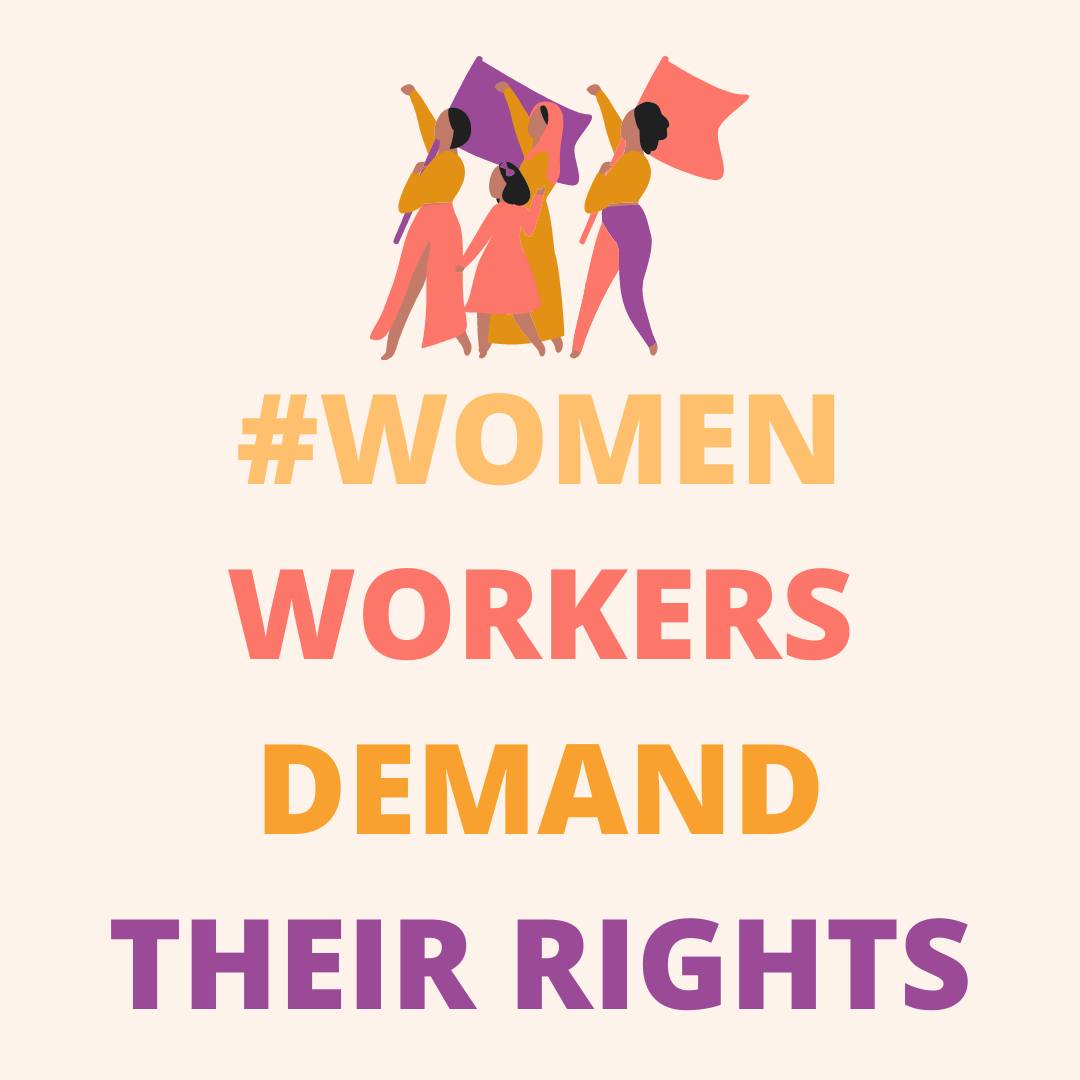 #WomenWorkersDemandTheirRights is a new GAATW initiative to highlight the value of women’s work in society and campaign for access of migrant workers to social security at home and abroad. It was launched as a South Asia regional campaign at an event in Kathmandu, Nepal in August 2022, by GAATW partners from Nepal, Bangladesh, India and Sri Lanka.
#WomenWorkersDemandTheirRights is a new GAATW initiative to highlight the value of women’s work in society and campaign for access of migrant workers to social security at home and abroad. It was launched as a South Asia regional campaign at an event in Kathmandu, Nepal in August 2022, by GAATW partners from Nepal, Bangladesh, India and Sri Lanka.
The campaign grew out of a recent Feminist Participatory Action Research (FPAR) carried out by members and partners of GAATW on the issue of sustainable reintegration of women migrant workers. That research highlighted the challenges faced by many women migrant workers in the region upon their return, including poverty, lack of employment opportunities, and domestic violence. These are among the causes of their migration in the first place. Underlying these are deeply engrained patterns of stigma, rejection and discrimination, which the campaign aims to change. Its main goals are to promote the inclusion of women migrant workers in social security schemes, and to address the widespread discriminatory attitudes in societies, so that women workers can finally get the respect they deserve.
GAATW partners in Bangladesh, India, Nepal and Sri Lanka have been carrying out a variety of public actions and activities under the banner of the campaign over the last three months, culminating in activities during the 16 Days of Activism Against Gender-Based Violence (25 November to 10 December). On 18 December International Migrants Day, the campaign highlighted the themes of promoting women migrant workers’ respect and dignity, and the need to better support them with adequate social security programmes upon their return.
In addition, the campaign was strengthened by other specific actions at country level:
- In Bangladesh, partner organisations were advancing campaign messages through local level work. This included demonstrations at local district offices, a street theatre on the themes of return and supporting women migrant workers’ dignity and respect in society, and coordinated photo stories. Bangladeshi partners also supported the country visit of the UN Special Rapporteur on trafficking in persons, providing crucial evidence and arranging meetings with survivors, which led to an official acknowledgement of the need for the government to address social stigma and discrimination against women migrants.
- Indian partners targeted state governments with campaign-related messages. In Telangana, domestic workers demonstrated for various benefits to be made available to them. In Kerala, the National Domestic Workers Platform organised a large protest to present their key demands to the state government:
1) Recognition of the employer’s home as their workplace
2) Provision of minimum wage for domestic workers in all states of India
3) Social protection on par with workers in the organised sector
4) Decent housing for domestic workers
The Center for World Solidarity (CWS) produced different campaign posters to be used at local and regional levels.
- In Nepal, partners organised a five-day advocacy training and national consultation workshop with returnee migrant women workers. The main advocacy themes included the lack of employment opportunities in Nepal and the demand for social security for women migrant workers. Different advocacy strategies and techniques, such as mass rallies, were also being planned.
- In Sri Lanka, groups of returnee migrant women were trained in performing street theatre to raise awareness about campaign themes and increase the support and respect for women workers. Specific topics of the plays included women migrant workers’ contributions to the economy and their challenges faced during migration, as well as the hard lives of migrant domestic workers. In addition, a petition was delivered to the Sri Lankan Ministry of Foreign Employment, demanding improved social security provisions for women workers and giving specific recommendations on actions to be taken by the government, including the immediate implementation of the National Migrant Health Policy.
